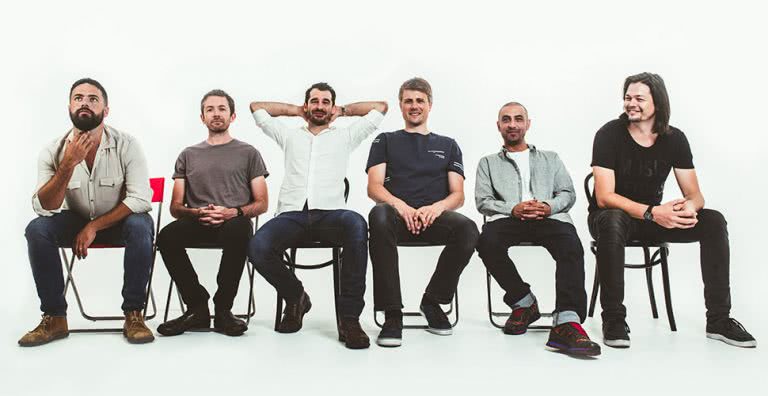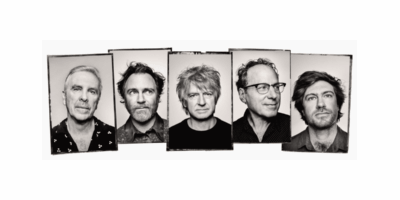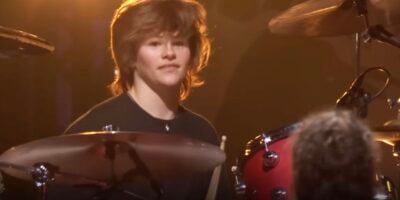The Cat Empire are an Australian indie rock hallmark. For almost two decades the band have wowed Australian music lovers, who have flocked to worship at the throne of their world-changing festival performances and headline shows.
Ahead of the release of their eighth full-length album Stolen Diamonds, we chatted with Felix Riebl, diving deep into the band’s legacy and the current state of Australian music.
The Cat Empire have been a major force in Australian indie rock for many years now. So, what have been the starkest changes in the music industry you have noticed and overcome over the years?
In some ways feel like we’ve really ridden a wave of change in the music industry like you know going back to the first album, the first and second album, we made in the early 2000s. Mid-2003 was the first album and the physical side of releasing music was a huge part of it you know like, I remember having our first album go platinum and it was just amazing the idea because people said, oh that’s 75,000 copy’s and like I just didn’t dream of that as a young musician. That physicality of the music, and then over the next decade we saw that completely transform.
We saw record labels merge and fall down we saw you know staff within those sorts of places completely change. We saw the emergence of online musicians making albums from their laptop and it’s just an incredible amount of change really, to what it is known we are living in a streaming environment in terms of how people are listening to their music.
We’ve seen radio stations totally changed, so anyway I feel like we’ve been witness to this whole overturning as a music industry. But what has remained really consistent for us as band, and what has been the I guess this bands legacy so far as we’ve always engaged with a live audience very much you know, from the very early days we were always a band that would play a city, get a word of mouth and more people would come back next time sort of thing. And that was something that was sort of jammed into us very early you know, as teenagers even.
And so, it’s been sort of interesting because that’s been really consistent you know that’s something that’s grown over a long time and has taken us all over the world many times over. That live music thing and so even though the industries changed, and id say it’s been wholesale really you know like the whole record industry in terms of going physical to digital is about as stark as you can get.
The Cat Empire – Oscar Wilde

Stolen Diamonds is your eighth album – it creates a certain vibe and it feels as though written for certain settings. Can you take me through the writing process for the album? Did it differ to previous efforts at all?
We kind of re- we stumbled into something that we all, we never sat down and said this but we all kind of knew it wordlessly I guess that we would make albums that would have enough excitement to them for the songs to step out of the studio onto stage in a really tough way and that’s, probably came down to the fact that we were playing bigger rooms around the world and we had this quite amazing international audience I mean Australia, international.
And for me I just want to say, when I make an album, I really want to make it to have something sort of for work for me on stage, they’re going to like light up a room sort of thing. And because that’s a very familiar space for this band like I said before that live exchange is so much what this bands about.
So, I think I really recognized that as a producer and that’s the reason why we made the last 3 albums with him. and so I guess, steal the light and ?into the sun?, and now stolen diamonds they feel a bit like a trilogy to me.
So far as like, the approach has been pretty similar for all of them even though we’ve tried different things production wise and the songs have been a different time and place and so I think there’s been the same intent before each album which is to say these songs are going to be tough and they are going to be exciting and they are going to be worthy of the audience bringing the sense of occasion to our shows. And they are going to be fun to play live.
You recently wrapped up a huge tour of Australia last year, what was the response for that like? I’m sure you guys have kind of seen your fan base grown up over the years, how has that connection you’re your fans evolved over time now that your seeing people come to maybe like their 7th or 8th Cat Empire show?
Yeah, it’s amazing, I mean a lot of them have brought their kinds as well. I think it helps a lot, we have been really fortunate because we’ve had an international career, I’ll come back to your question about Australia because I think this relates to it, but overseas for instance. In the last 5 years the band has just blown up in Spain so its like a lot of people have just discovered the band in Spain and its on you know television and other things there. We are playing really big rooms in that country and so the audience there is kind of younger its what the cat empire would be 10-15 years ago in a way in its terms of its demographic I guess when you look at it from stage.
In Germany a similar thing happened, and so you get these different parts of the world where the bands at different stages of you know, giving something and that being exciting. And so, when you travel over there you go, oh this is fresh in a really different way and you know your challenged to perform in different ways. And the media requirements, your doing all that sort of stuff is – and festival spots that kind of thing really plays into this its important it makes you feel as if the band is very contemporary.
The Cat Empire – Kila

Which is not to say that when were in Australia were not, its just to say in Australia we’ve been around for a long time and its true, people are coming to their often 10th show or something like that. And they’ve had kids and they re bringing them. So, in Australia the feeling is more to take that kind of energy that we’ve found from overseas and to bring it back here and that keeps us relevant over here. I’ve always been so weary of as soon as this band becomes a nostalgic thing, like as soon as I look out into the audience and see that its like re-hashing the oldies and trying to create something that’s nostalgic, then I know it’s time for the band to end.
I want it to have that sense of excitement, tonight could be new sort of thing so it’s hard because I mean when people have seen you a lot of times you want to try and keep that sense of excitement like tonight’s something new you know. So, look its an ongoing question, you can help but be who you are as a band and I guess we have just been fortunate because we can go overseas and kind of like re-invent ourselves and come back and all that sort of thing.
What’s your current take on the state of Australian indie music?
Oh, look I think the state of the music in Australia is fantastic, I’m fairly optimistic about all that stuff. You know the fact that they changed the date of the triple j hottest 100 based off an album was a really amazing thing and it gave me confidence that music can be political and should be, we’ve got a great tradition in Australia going back to the 70s and 80s of bands being really politically active and involved in it. I think we need to have that.
So, I feel like what has done has been fantastic. Listening to it, I’m excited by new music a lot of the time, at the same time I’ve got to admit I listen to a lot of other music other than triple j as well, the cat empire on this album sings songs in French and Spanish. I listen to a lot of music, you know its well documented South African music and Cuban music, and a lot of more rare and strange Caribbean music as well.
I spend a lot of my time hassling jumps when I’m on tour for new tips on what to listen to and stuff like that so I feel like I have a nice mixture of listening to new contemporary pop or rock music from Australia and also going down rabbit holes in terms of my musical past which is a bit more diverse than that I think.


































